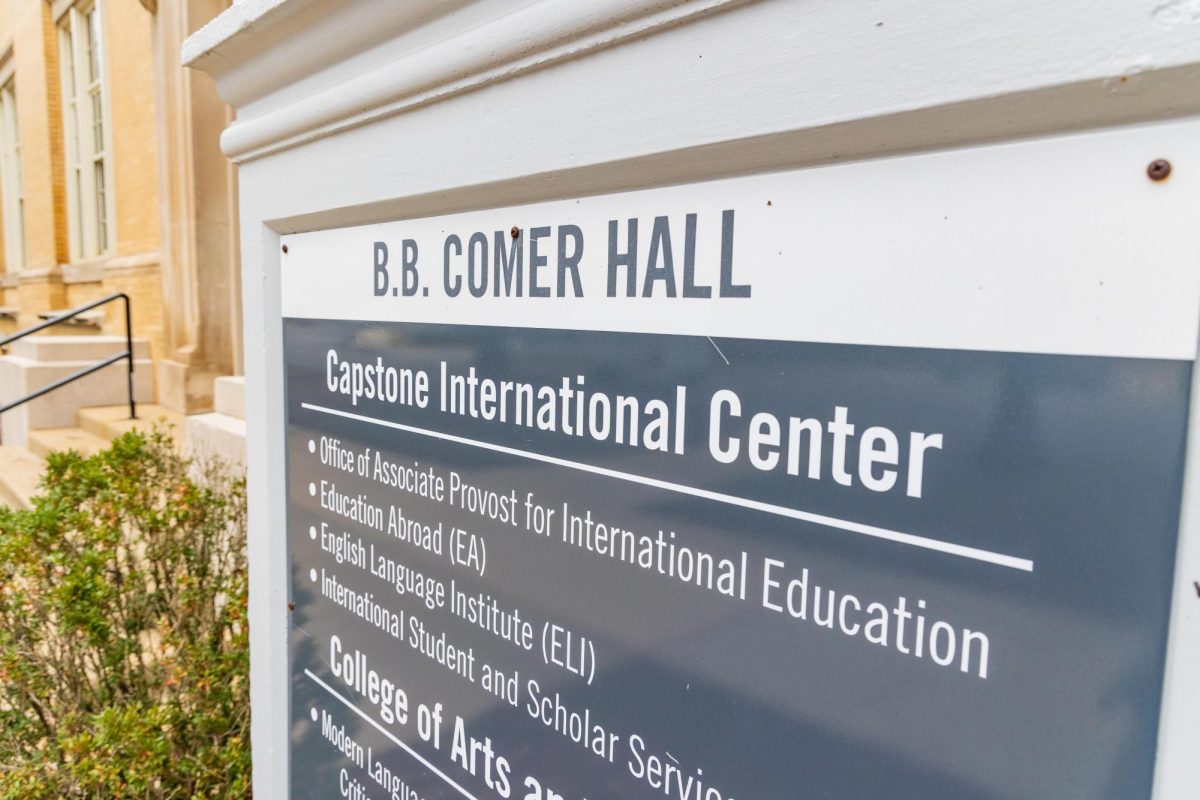The potential for Shepherd Bend, LLC to place a strip mine on University property next to the Black Warrior River continues to draw opposition from students and concerned citizens.
The University of Alabama Environmental Council, an environmentalist student group, invited Black Warrior Riverkeeper Nelson Brooke to speak Wednesday evening in Lloyd Hall about the damage coal mining can have on the state’s rivers.
Stretching 300 miles in length, the Black Warrior River has much to lose in terms of the quality of its drinking water and its habitat from coal mining activities, such as wastewater discharge, Brooke said.
The proposed coal mine would be situated across the river from a major drinking water intake for the Birmingham Water Works Board, which supplies drinking water for about 200,000 people, he said.
Chemicals deposited into the water supply can have consequences for the long-term health of those who consume the pollutants, Brooke said.
“A fair amount of exposure can cause some problems,” he said. “What’s scary about it is that it plays out over time.”
State agencies tasked with regulating the permits granted to coal mining businesses have been negligent, he said.
“There’s a track record of the state issuing very weak permits,” he said.
The Alabama Surface Mining Commission issued in October 2010 a permit to Shepherd Bend, LLC to mine 286 acres, the majority of which is owned by the University of Alabama System.
Without the consent of the UA System and other property holders, Shepherd Bend, LLC will be able to mine only 34 of the 286 acres, according to a Black Warrior Riverkeeper newsletter.
In addition to the permit issued by ASMC, the Alabama Department of Environmental Management issued a wastewater discharge permit to Shepherd Bend, LLC in July 2008, which is being appealed by the Black Warrior Riverkeeper.
“We fight [ADEM] more than we fight polluters,” Brooke said. “They rubber-stamp permits regularly with very little review.”
The UA System has not declared a position about leasing or selling its property to Shepherd Bend, LLC and has said that the coal mining company has not approached the University to request the land, according to Cathy Andreen, director of media relations.
The UA System did send out bids in 2007 for responsible coal mining companies who would be interested in University property, Brooke said.
Caitlin McClusky, president of UAEC, said UAEC has been gathering student pledges for a boycott of University services if the University allows Shepherd Bend, LLC to mine on its property.
The boycott encourages students to refrain from paying for certain services such as University parking, meal plans or on-campus living.
More than $1 million would be taken away from the University if the boycott is implemented with the loyalty of the students who have pledged, McClusky said.
“I think it makes a statement that if the University is going to treat itself like a business, the students should begin treating it like a business,” she said.
Mallory Flowers, vice president of UAEC, said the boycott intends to win the attention of the University through subverting its economic interest in leasing the property.
“The only reason the University would have an interest in implementing the coal mine is to gain money,” she said.








